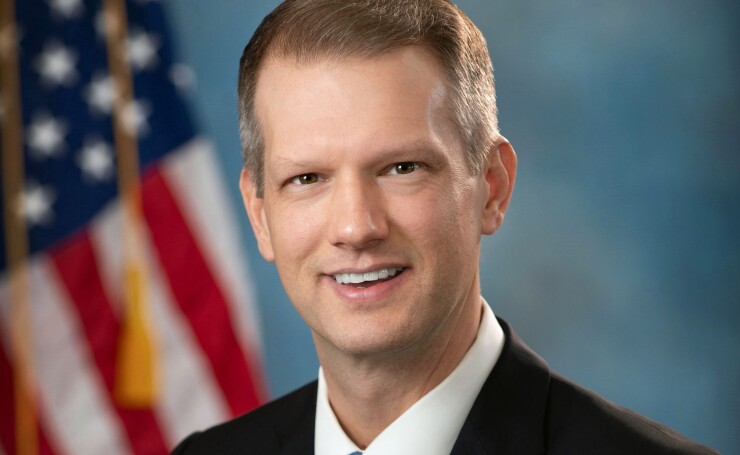West Virginia State Treasurer
The blacklist is authorized in a 2022 state law
The treasurer can disqualify a restricted financial institution from the competitive bidding process or from any other official selection process; refuse to enter into a banking contract with a restricted financial institution based on its restricted status; and require an agreement by the financial institution not to engage in boycott of energy companies for the duration of the contract.

The Treasurer's Office has made an initial determination that the six institutions appear to be engaged in boycotts of fossil fuel companies as defined under state law. The determination was based on a review of each institution's environmental, social and governance policies and other available statements, Moore said
The financial institutions, which were not named by Moore, received notices of potential inclusion on the list last Friday.
However, the
The institutions now have 30 days to submit a response. Unless the firms show to the treasurer's office they are not engaged in a boycott of fossil fuel companies they will officially be placed on the list in 45 days.
One of the firms listed by the Times, HSBC, told the Washington Times it rejected the assertion it is a fossil-fuel "boycotter."
The restrictions don't apply to municipal bond issuances by the state because the Treasurer's Office does not handle bond issuances. They mainly apply to the banking and cash handling functions of the office, which see about $20 billion in inflows and outflows a year. It also does not apply to state pension funds.
Under the 2022 law, the treasurer may exclude banks on the list from eligibility for contracts for state banking services.
It follows a
The first West Virginia list was published in July 2022 when Moore determined
Moore says the blacklist protects the traditional extraction industries of West Virginia.
The natural resources industry represents about 3% of West Virginia jobs, according to the West Virginia University's most recent
"While the environmental, social and governance or ESG movement might be politically popular in California or in New York, financial institutions need to understand their practices are hurting people across West Virginia," Moore said at the time.
Last week, Moore praised JPMorgan Asset Management and State Street Global Advisors for their choice to
"This is a step in the right direction and significant victory in our states' fight against the international corporate collusion targeting the coal, oil and natural gas industries," Moore said.
In January, Moore applauded the New York Stock Exchange's decision to curtail the decision making freedom of private sector investors by withdrawing its proposal filed to Securities and Exchange Commission that would have allowed the public listing of Natural Asset Companies, climate-focused corporations designed to convert natural assets into financial capital by taking over land owned by private entities and individuals and the federal, state and local government.
Under the NYSE proposal, NACs would have had "the authority to manage the areas for conservation, restoration or sustainable management" and are prohibited from engaging in fossil fuel-related developments."
In December, Moore blasted President Joe Biden's ESG policies after his special climate envoy John Kerry pledged at the 28th United Nations Climate Change Conference that the U.S. would begin a phase-out of all existing coal-based power plants and urged that coal use be eliminated worldwide. Moore urged Congress to use its authority to block the agreements made at the summit.
"West Virginia and our coalition of states have been fighting for years against these efforts to boycott and curtail capital to our critical energy industries and diminish important economic activity and revenue for our states. This is a sign our efforts are making an impact," Moore said Monday.
Last month, South Carolina
The bill,
It directs that all investment decisions made by the South Carolina Retirement System Investment Commission be based solely on maximizing the highest rate of return and not on ESG factors.
Other Republican-run states have followed Texas' lead and enacted laws that have led to underwriter bans. Last year, the Oklahoma Treasurer's Office produced a
Leaders in GOP states have also battled what they like to call "woke culture" in other areas as well. Wokeness, according to court testimony by an official in anti-ESG leader Florida Gov. Ron DeSantis' administration,
Last year, DeSantis
The Florida
Last week, DeSantis unveiled
"The district's recent audit report justified our shared concerns: Disney was acting as a law unto itself," DeSantis said. "Since our reforms, the new district has taken bold action to increase transparency, community engagement, and fiscal responsibility, and has saved taxpayers $18.4 million."
The CFTOD has implemented safety inspections by the Florida Department of Transportation, he said, for the Disney monorail system, saying it had lacked FDOT oversight before.





